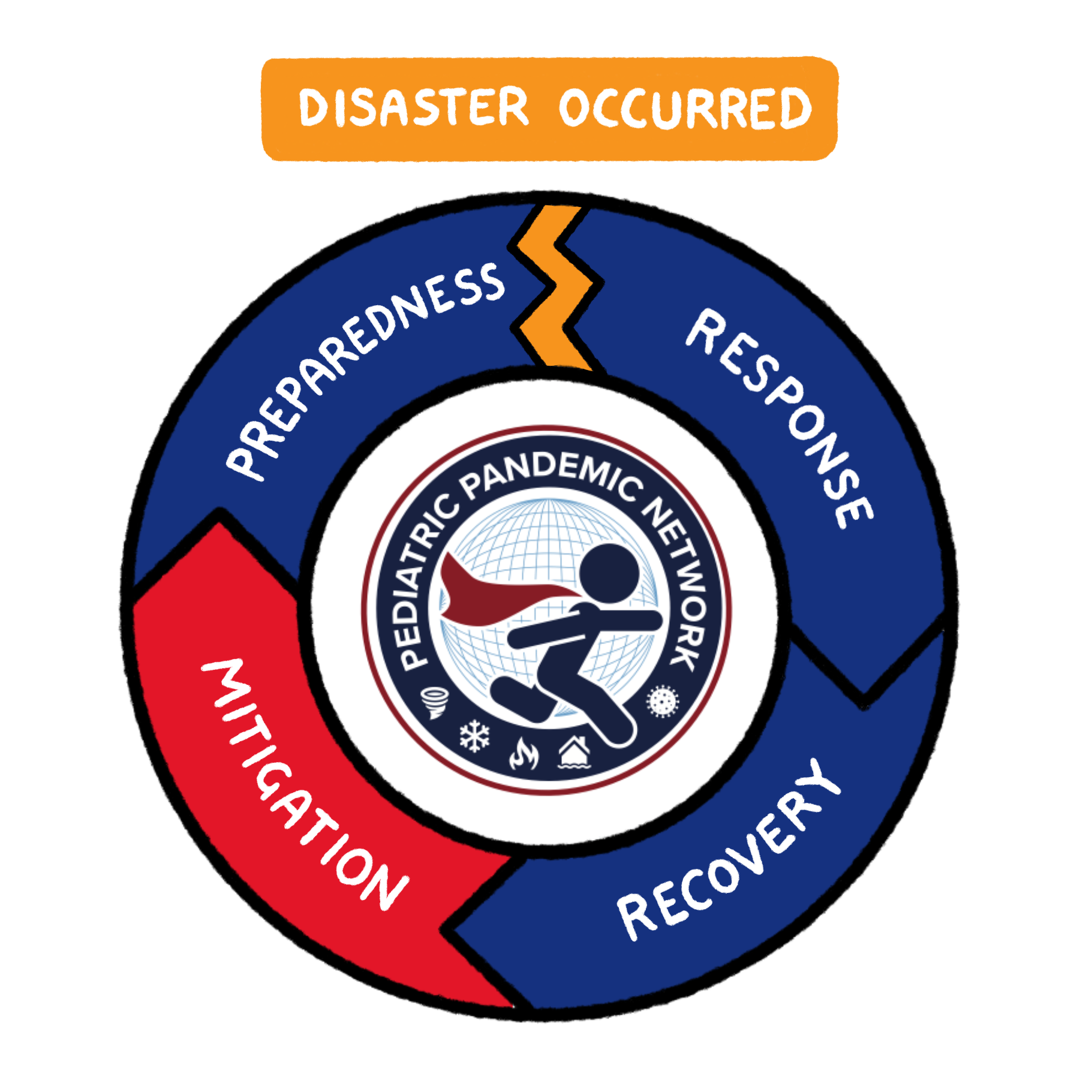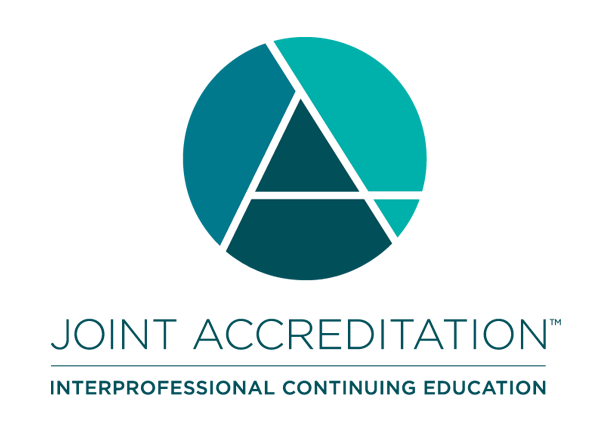Pediatric Behavioral Health in Disasters: Mitigation
 Mitigation strategies are used to reduce the cause, impact, and consequences of a disaster. Trauma-informed systems of care can mitigate trauma and support resilience by acknowledging the impact trauma has on social-emotional and physical functioning. Such an approach has been shown to improve patient engagement, treatment adherence, and health outcomes, and decrease provider stress and burnout. The American Academy of Pediatrics (AAP) has provided suggestions for preparing to meet the needs of infants, children, and adolescents using a systems-based approach. Learn more about how systems can collaborate at Building an Effective System of Care to Address Emerging Threats to Infants and Children (AAP) to determine areas where disaster preparedness and response can be strengthened.
Mitigation strategies are used to reduce the cause, impact, and consequences of a disaster. Trauma-informed systems of care can mitigate trauma and support resilience by acknowledging the impact trauma has on social-emotional and physical functioning. Such an approach has been shown to improve patient engagement, treatment adherence, and health outcomes, and decrease provider stress and burnout. The American Academy of Pediatrics (AAP) has provided suggestions for preparing to meet the needs of infants, children, and adolescents using a systems-based approach. Learn more about how systems can collaborate at Building an Effective System of Care to Address Emerging Threats to Infants and Children (AAP) to determine areas where disaster preparedness and response can be strengthened.
Working with Systems
It is recommended that systems in which children live and play (e.g. Emergency Department, medical home, other ambulatory settings, and schools) be trauma-informed. To be trauma-informed is to acknowledge, identify, and support that children may currently be experiencing trauma and possibly have had exposure to previous traumatic events including natural, biologic, and/or manmade disasters. SAMHSA’S Concept of Trauma and Guidance for a Trauma-Informed Approach identifies four key principles to establishing a trauma-informed system of care. These key principles include: Realizing the widespread impact of trauma and understanding potential pathways to recovery; Recognizing signs and symptoms of trauma in patients; Responding by fully integrating knowledge about trauma into policies, procedures and practices; and Resisting re-traumatization by avoiding unintentional triggers of past traumatic experiences with organization policies and practices. For more information on implementing a trauma-informed system of care within medical settings, refer to The National Child Traumatic Stress Network Trauma-Informed Integrated Care for Children and Families in Healthcare Settings.
Actionable Steps
The World Health Organization recently recognized that physician-centered individual care and hospital-based programs were inadequate to achieve global health. A population-based approach is recommended to provide multiple levels of intervention to address the health and mental health needs of the total population.
Behavioral health clinicians can mobilize the workforce to prepare for the psychological needs of children exposed to disasters through psychoeducation on risk and resilience factors, trauma reactions in children, collective trauma, and vicarious/secondary trauma.
Target Audience
- Nurses
- Nurse Practitioners
- Physicians
- Physician Assistants
- Psychologists
- Social Workers
Learning Objectives
- Identify 3 ways in which the behavioral health clinician can be involved in supporting a trauma-informed system of care in the medical setting.
- Recognize common warning signs of trauma exposure response.
- Identify 3 behavioral health-related interventions that can be included in primary care office disaster mitigation or preparedness plans.
Joint Accreditation Statement
In support of improving patient care, this activity has been planned and implemented by Children’s National Hospital. Children’s National Hospital is jointly accredited by the Accreditation Council for Continuing Medical Education (ACCME), the Accreditation Council for Pharmacy Education (ACPE), and the American Nurses Credentialing Center (ANCC), to provide continuing education for the healthcare team. Children’s National Hospital Accreditation Provider# 4008362


Available Credit
- 1.00 ACPE PharmacistChildren’s National Hospital is accredited by the Accreditation Council for Pharmacy Education (ACPE) as a provider of continuing pharmacy education. This program meets ACPE criteria for 1.00 contact hours.
- 1.00 AMA PRA Category 1 Credit™Children's National Hospital designates this Enduring activity for a maximum of 1.00 AMA PRA Category 1 Credit™. Physicians should claim only the credit commensurate with the extent of their participation in the activity.
- 1.00 ANCCChildren's National Hospital will provide 1.00 Nursing Contact Hours for this Enduring activity.
- 1.00 APAContinuing Education (CE) credits for psychologists are provided through the co-sponsorship of the American Psychological Association (APA) Office of Continuing Education in Psychology (CEP). The APA CEP Office maintains responsibility for the content of the programs. All confirmed participants will earn 1.00 CE credits upon successful completion of the learning event and evaluation.
- 1.00 ASWBAs a Jointly Accredited Organization, Children’s National Hospital is approved to offer social work continuing education by the Association of Social Work Boards (ASWB) Approved Continuing Education (ACE) program. Organizations, not individual courses, are approved under this program. Regulatory boards are the final authority on courses accepted for continuing education credit. Social workers completing this course receive 1.00 continuing education credits.
- 1.00 General
- 1.00 ParticipationSuccessful completion of this continuing education activity.

 Facebook
Facebook X
X LinkedIn
LinkedIn Forward
Forward